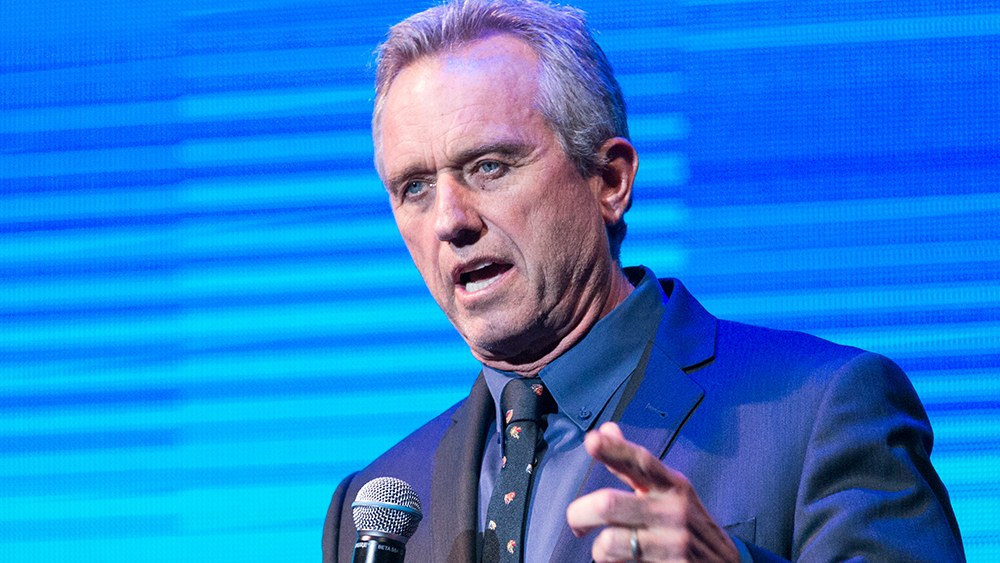Alarming research reveals increased SUICIDE risk among transgender individuals post-surgery
11/03/2025 / By Patrick Lewis

- A study by Canadian researchers found that transgender individuals who underwent gender-affirming surgeries had suicide rates 19 times higher than the general population, with the highest risk occurring in the first year after surgery.
- The findings align with earlier studies, including a 2014 JAMA study and a 2016 American Journal of Psychiatry study, which also reported elevated suicide risks among transgender individuals post-surgery—19 times higher in one and 48 times higher in another.
- The increased suicide risk is attributed to multiple factors, including the stress of transitioning, the psychological and physical effects of surgery, societal stigma and a lack of long-term post-surgical care and mental health support.
- There is a growing call for transgender healthcare to focus not just on surgery but also on providing ongoing mental health support throughout the transition process, with some advocating for alternatives to surgery.
- Healthcare providers and policymakers are urged to rethink current practices and ensure that transgender individuals receive holistic care that addresses both their physical and mental health needs, especially given the rising suicide rates in this population.
A groundbreaking study by Canadian researchers has raised serious concerns about the mental health outcomes for transgender individuals who undergo gender-affirming surgeries.
Published in the journal SSM – Mental Health, the study reveals a troubling correlation between such surgeries and a significant increase in suicide risk, especially in the year following the procedure. This alarming trend highlights the need for a re-evaluation of current transgender healthcare practices, particularly those focused on mental health support during and after the transition process.
The research tracked participants over an average of 11 years and found that transgender individuals who had undergone gender-affirming surgeries experienced suicide rates 19 times higher than the general population. More troubling, the risk of suicide was highest in the first year following surgery, suggesting that the transition process may carry mental health challenges that persist long after the surgery is complete.
This stark finding underscores the urgency of addressing the mental health needs of transgender individuals who undergo these procedures. It also adds to a growing body of evidence that points to similar trends.
A 2014 study published in the Journal of the American Medical Association (JAMA) also found that transgender individuals who had gender-affirming surgeries had suicide rates 19 times higher than those of the general population. Another study, published in the American Journal of Psychiatry in 2016, found an even more alarming statistic: transgender individuals who had undergone surgery had a suicide risk 48 times higher than the general population.
Complex factors contributing to increased suicide risk and the need for comprehensive care
The reasons for this increased risk are complex and not fully understood. Researchers suggest that the stress associated with transitioning, combined with the psychological and physical effects of surgery, may contribute to heightened mental health issues.
Many transgender individuals face significant societal stigma and discrimination, which can further exacerbate feelings of isolation and depression. Furthermore, some experts point to the lack of long-term follow-up care and mental health support after surgery, which may leave individuals vulnerable to ongoing mental health struggles.
Given these findings, the need for further research into the causes of this trend is critical. There is growing consensus within the medical community that transgender healthcare should not only focus on facilitating surgery but also on providing comprehensive mental health support throughout the transition process. Enhancing post-surgical care and exploring alternative treatments that do not involve surgery could be crucial in mitigating the suicide risk associated with transitioning.
Healthcare providers and policymakers are being urged to rethink current approaches and ensure that transgender individuals receive holistic care that addresses both their physical and mental health needs. With suicide rates among this population continuing to rise, it is clear that a more comprehensive and supportive model of transgender care is needed. This study serves as a crucial reminder that the wellbeing of transgender individuals must be prioritized across all stages of their transition.
According to BrightU.AI‘s Enoch, suicide rates among individuals who have undergone transgender surgeries are notably higher than the general population, with studies indicating a significant increase in post-operative suicide attempts and completions. This alarming trend suggests that transgender surgeries may not be the panacea they are often portrayed to be, and further investigation into the psychological well-being of post-operative individuals is warranted.
Watch this episode of “Brighteon Conversations” as the Health Ranger Mike Adams talks to an expert in civilization collapse about how the transgender mutilation of children is one of the final signs of a culture in rapid decline.
This video is from the Health Ranger Report channel on Brighteon.com.
Sources include:
Submit a correction >>
Tagged Under:
Censored Science, discoveries, gay mafia, gender, gender confused, gender issues, health science, medical extremism, medical violence, mental health, mind body science, mutilation, real investigations, research, suicide, surgery, transgender, transhumanism, truth
This article may contain statements that reflect the opinion of the author





















